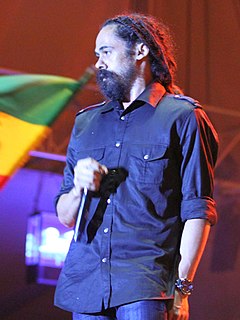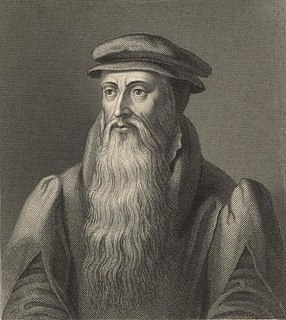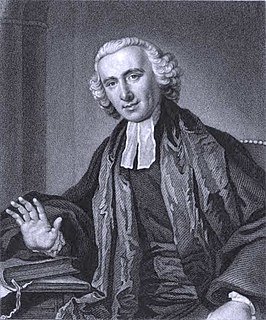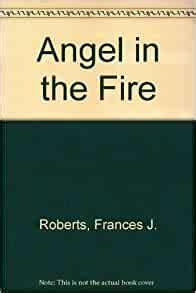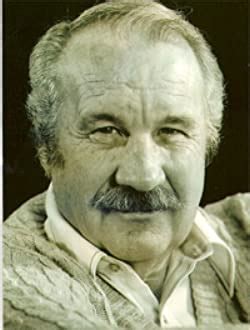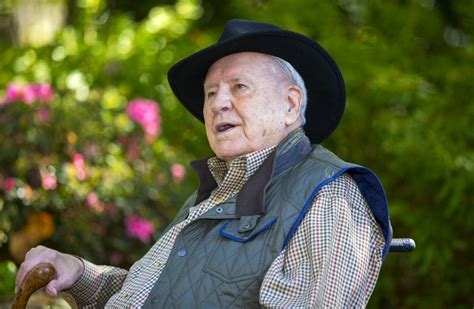Top 92 Psalms Quotes & Sayings - Page 2
Explore popular Psalms quotes.
Last updated on November 26, 2024.
I am a Christian because of that moment on the cross when Jesus, drinking the very dregs of human bitterness, cries out, My God, my God, why hast thou forsaken me? (I know, I know: he was quoting the Psalms, and who quotes a poem when being tortured? The words aren’t the point. The point is he felt human destitution to its absolute degree; the point is that God is with us, not beyond us, in suffering.)
No words can express how much the world owes to sorrow. Most of the Psalms were born in the wilderness. Most of the Epistles were written in a prison. The greatest thoughts of the greatest thinkers have all passed through fire. The greatest poets have "learned in suffering what they taught in song." In bonds Bunyan lived the allegory that he afterwards wrote, and we may thank Bedford Jail for the Pilgrim's Progress. Take comfort, afflicted Christian! When God is about to make pre-eminent use of a person, He put them in the fire.
Nowhere have I found words more powerful than those in the Psalms. Their fervid poetry cleanses one, gives one strength, brings hope in moments of darkness. Makes one look critically into oneself, convict oneself, and wash one's heart clean with one's own tears. It is the ever-burning fire of love, of gratitude, humility, and truth.
I pray the breviary every morning. I like to pray with the psalms. Then, later, I celebrate Mass. I pray the Rosary. What I really prefer is adoration in the evening, even when I get distracted and think of other things, or even fall asleep praying. In the evening then, between seven and eight o'clock, I stay in front of the Blessed Sacrament for an hour in adoration. But I pray mentally even when I am waiting at the dentist or at other times of the day.
When children ask you questions about gray hairs, and wrinkles in the face, and sighs that have no words, and smiles too bright to be carved upon the radiant face by the hands of hypocrisy--when they ask you about kneeling at the altar, speaking into the vacant air, and uttering words to an unseen and in an invisible Presence--when they interrogate you about your great psalms, and hymns, and anthem-bursts of thankfulness, what is your reply to these? Do not be ashamed of the history. Keep steadily along the line of fact. Say what happened to you, and magnify God in the hearing of the inquirer.
There is a historic strain of dominion theology which says, taking its references from the Psalms, that man is made just a little lower than God, and that we are the crown of creation. That interpretation has come at the expense of the one that says when God, in the story of Noah, intervened to save human life against the flood, against the acts of nature, He did not stop with human beings. He made sure that every kind of animal was represented twice on that ark.
Though we may feel we are "like a broken vessel," as the Psalmist says (Psalms 31:12), we must remember, that vessel is in the hands of the divine potter. Broken minds can be healed just the way broken bones and broken hearts are healed. While God is at work making those repairs, the rest of us can help by being merciful, nonjudgmental, and kind.
Prayer is an earnest and familiar talking with God, to whom we declare all our miseries, whose support and help we implore and desire in our adversities, and whom we laud and praise for our benefits received. So that prayer contains the exposition of our sorrows, the desire of God's defence, and the praising of His magnificent name, as the Psalms of David clearly do teach.
What I see in the Bible, especially in the book of Psalms, which is a book of gratitude for the created world, is a recognition that all good things on Earth are God's, every good gift is from above. They are good if we recognize where they came from and if we treat them the way the Designer intended them to be treated.
In my craft or sullen art Exercised in the still night When only the moon rages And the lovers lie abed With all their griefs in their arms, I labour by singing light Not for ambition or bread Or the strut and trade of charms On the ivory stages But for the common wages Of their most secret heart. Not for the proud man apart From the raging moon I write On these spindrift pages Nor for the towering dead With their nightingales and psalms But for the lovers, their arms Round the griefs of the ages, Who pay no praise or wages Nor heed my craft or art.
Wait on the Lord" is a constant refrain in the Psalms, and it is a necessary word, for God often keeps us waiting. He is not in such a hurry as we are, and it is not his way to give more light on the future than we need for action in the present, or to guide us more than one step at a time. When in doubt, do nothing, but continue to wait on God. When action is needed, light will come.
For what St. Augustine said is true, that one can sing nothing worthy of God save what one has received from Him. Wherefore though we look far and wide we will find no better songs nor songs more suitable to that purpose than the Psalms of David, which the Holy Spirit made and imparted to him. Thus, singing them we may be sure that our words come from God just as if He were to sing in us for His own exaltation. Wherefore, Chrysostom exhorts men, women, and children alike to get used to singing them, so as through this act of meditation to become as one with the choir of angels.
Only relinquish all things into My hands: for I can work freely only as ye release Me by complete committal both of thyself and others. Even as was written of old: "Commit thy way unto the Lord: trust also in Him: and He shall bring it to pass". (Psalms 37:5) I will be thy sustaining strength; and My peace shall garrison thy mind. Only TRUST ME that all I do is done in love.
Let the gentleman go to Revelation to learn the decree of God - let him go to the Bible. . . . I said that slavery was sanctioned in the Bible, authorized, regulated, and recognized from Genesis to Revelation. . . . Slavery existed then in the earliest ages, and among the chosen people of God; and in Revelation we are told that it shall exist till the end of time shall come. You find it in the Old and New Testaments - in the prophecies, psalms, and the epistles of Paul; you find it recognized - sanctioned everywhere.
The Psalter is the prayer book of Jesus Christ in the truest sense of the word. He prayed the Psalter and now it has become his prayer for all time...we understand how the Psalter can be prayer to God and yet God's own Word, precisely because here we encounter the praying Christ...because those who pray the psalms are joining in with the prayer of Jesus Christ, their prayer reaches the ears of God. Christ has become their intercessor.
Islam says: Whatever good there is exists thanks to the sword and in the shadow of the sword! People cannot be made obedient except with the sword! The sword is the key to Paradise, which can be opened only for the Holy Warriors! There are hundreds of other [Qur'anic] psalms and Hadiths [sayings of the Prophet] urging Muslims to value war and to fight. Does all this mean that Islam is a religion that prevents men from waging war? I spit upon those foolish souls who make such a claim.
It would be worth the while to select our reading, for books are the society we keep; to read only the serenely true; never statistics, nor fiction, nor news, nor reports, nor periodicals, but only great poems, and when they failed, read them again, or perchance write more. Instead of other sacrifice, we might offer up our perfect (teleia) thoughts to the gods daily, in hymns or psalms. For we should be at the helm at least once a day.
Ecclesiastes names thee Almighty, the Maccabees name thee Creator, the Epistle to the Ephesians names thee Liberty, Baruch names thee Immensity, the Psalms name thee Wisdom and Truth, John names thee Light, the Book of Kings names thee Lord, Exodus names thee Providence, Leviticus Sanctity, Esdras Justice, creation names thee God, man names thee Father; but Solomon names thee Compassion, which is the most beautiful of all thy names.
If one accepts the 24th and 104th Psalms as scriptural norms, then surface mining and other forms of earth destruction are perversions. If we take the Gospels seriously, how can we not see industrial warfare - with its inevitable massacre of innocents - as a most shocking perversion? By the standard of all scriptures, neglect of the poor, of widows and orphans, of the sick, the homeless, the insane, is an abominable perversion.
The Psalms are much more than poetry. Many of them bear the title, Maskil, or teaching psalm. They are thus intended to instruct the mind as well as to encourage the heart. They are designed not only to reflect a mood, but to show us also how to handle that mood; how to escape from depression or how to balance exaltation with wisdom.
I knew all of the childhood prayers I uttered on my knees at the side of my bed. Many years of Sunday-school attendance had etched certain Psalms and rote prayers into the fibers of my brain. However, somewhere deep inside of me, I had the secret belief that I did not know how to pray, and that frightened me.
The cliché, God hates the sin but love the sinner, is false on the face of it and should be abandoned. Fourteen times in the first fifty Psalms alone, we are told that God hates the sinner, His wrath is on the liar, and so forth. In the Bible, the wrath of God rests both on the sin (Romans 1:18ff) and on the sinner (John 3:36).
A social order bent on producing wealth as an end in itself cannot avoid the creation of a people whose souls are superficial and whose daily life is captured by sentimentalities. They will ask questions like “why does a good God let bad things happen to good people ” such people cannot imagine that a people once existed who produced and sang the psalms. If we learn to say “God ” we will do so with the prayer “My God my God why have you forsaken me?
It has been said by church historians that in those periods of Christian history where renewal, revival, and awakening took place and the church was at its strongest, that coincidental with those periods in church history, there was a strong focus on the psalms in the life of God's people-particularly in the worship of God's people.
In HEATHEN, R. Flowers Rivera remixes the classical and the Biblical, the usual and the typical until what we thought we knew of ourselves and others is new again. The mythic becomes particular; the particular becomes mythic in these fascinating poems of personalities and personas. Rivera’s work is rich in empathy and invention. Heathen is a book of psalms for the present day.
The Psalms offer us a way of joining in a chorus of praise and prayer that has been going on for millennia and across all cultures. Not to try to inhabit them, while continuing to invent non-psalmic 'worship' based on our own feelings of the moment, risks being like a spoiled child who, taken to the summit of Table Mountain with the city and the ocean spread out before him, refuses to gaze at the view because he is playing with his Game Boy
Spring is beautiful everywhere, but it is more than beautiful in Lebanon. Spring is the spirit of an unknown God speeding through the world, which, as it reaches Lebanon, pauses, because now it is as at home with the souls of the Prophets and Kings hovering over the land, chanting with the brooks of Judea, the eternal Psalms of Solomon, renewing with the Cedars of Lebanon memories of an ancient glory.






